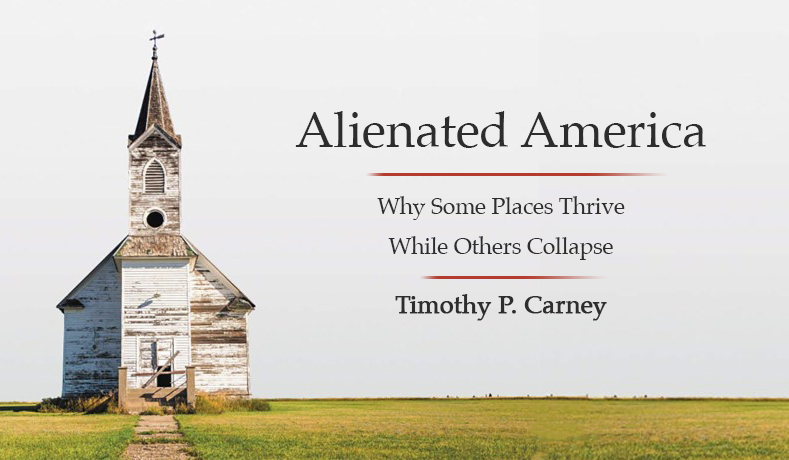
by David Bass | Aug 8, 2019
Some food for thought as kids head back to school
Many Georgia students return to the classroom this month. For most, the last days before school begins are an exciting time to squeeze in that last bit of summer fun and get stocked up on school supplies.
But for students in poverty, a new school year often brings levels of anxiety that most folks are unaware of.
For some perspective, here are some barriers to success that far too many Georgia students face:
- Vocabulary
Kids in poverty hear fewer spoken words than their affluent peers—setting in motion huge differences in vocabulary attainment and academic achievement that follow them the rest of their lives.
- Hunger
Kids in poverty often come to school hungry. In Georgia, more than 500,000 children experience hunger and are more likely to have lower math scores, be held back a grade, and lag behind language, motor skills, and behavior.
- Lack of enrichment
Kids in poverty are more likely to lack enriching opportunities in music, art, and theater than affluent kids. In fact, 70% of Georgia school district leaders say poverty is the most significant issue limiting student learning.
- Language barriers
Kids in poverty are more likely to come from homes where English is not spoken. In Atlanta, 7% of students do not speak English at home—creating another obstacle to overcome at school.
Knowing each child experiences education differently is a mandate for our education system to be malleable. Children of all backgrounds and experiences must have equal access to quality public education as well as individualized education options.

by David Bass | Aug 6, 2019
Government healthcare benefits create another welfare cliff that hurts the poor
Imagine being a worker on government assistance because your job doesn’t quite meet your bills. Then, finally, you get that raise to put you over the top and relieve some stress.
The one catch: You lose assistance needed for things like health insurance. Now, you bring home less than before.
This is called the “welfare cliff,” and it’s a situation for far too many people working to get off government assistance.
And the biggest culprit of this “welfare cliff”? Healthcare.
A practical example
Picture a single person earning the equivalent of $8.25 per hour in a full-time job with no health benefits. She would qualify for Medicaid under the Affordable Care Act’s expansion rules. But just by earning a five-cent-per-hour raise would disqualify her entirely from Medicare due to the benefit cliff.
What’s more, the welfare system is also discouraging this single mom from marrying. Only in a situation where the dad earns enough to overcome the loss in benefits would marriage be financially worthwhile.
This example shows the negative impacts of welfare cliffs in preventing people from transitioning off assistance, moving up the economic ladder, and creating better lives for themselves and their families. While well-intentioned, these welfare benefits end up trapping people in a low-income existence.
The real tragedy of welfare cliffs is that hard-working welfare recipients who are striving to get ahead find that becoming independent of public assistance is virtually impossible because of the financial hardship they will have to endure.
A practical example
Picture a single person earning the equivalent of $8.25 per hour in a full-time job with no health benefits. She would qualify for Medicaid under the Affordable Care Act’s expansion rules. But just by earning a five-cent-per-hour raise would disqualify her entirely from Medicare due to the benefit cliff.
What’s more, the welfare system is also discouraging this single mom from marrying. Only in a situation where the dad earns enough to overcome the loss in benefits would marriage be financially worthwhile.
This example shows the negative impacts of welfare cliffs in preventing people from transitioning off assistance, moving up the economic ladder, and creating better lives for themselves and their families. While well-intentioned, these welfare benefits end up trapping people in a low-income existence.
The real tragedy of welfare cliffs is that hard-working welfare recipients who are striving to get ahead find that becoming independent of public assistance is virtually impossible because of the financial hardship they will have to endure.
What’s the solution?
We all want a welfare system that truly serves as a safety net, helping those who can’t help themselves while encouraging able-bodied adults to find work, improve their lives, and form stable marriages and families.
The Georgia Center for Opportunity has proposed welfare reforms that would:
- Combine programs and reduce confusion and redundancy
- Not punish welfare recipients for earning more
- Encourage marriage and family formation
For healthcare specifically, our goal is to create a market-driven system that improves healthcare access for everyone by equalizing risk across the entire insured pool (as insurance is supposed to do), driving down prices while enhancing quality, having health insurance follow people rather than employers, and eliminating welfare cliffs and marriage penalties.
For those who are able to work, the ultimate question is this: Should the purpose of government-sponsored, means-tested healthcare programs, like Medicaid, be to get people back on their feet as they transition into the workforce? Or should the purpose be to provide perpetual benefits, with no end in sight?
Read more: A Real Solution for Health Insurance and Medical Assistance Reform
Read more: What Does an Ideal Solution to the Health Insurance Crisis Look Like?

by David Bass | Jul 31, 2019
Expanding Medicaid is not enough to help middle class families in Georgia
Some in Georgia are pushing for a full expansion of Medicaid. As the Georgia Center for Opportunity (GCO) team has outlined before, this step would do more harm than good for low-income Georgia families.
But there’s another narrative unfolding that tends to not get much attention: expanding Medicaid doesn’t solve the problem of uninsured middle-class families in the Peach State. Far from it, in fact.
“Georgia lags most of the rest of the nation on health insurance“
The un-affordability problem
Proposals to expand Medicaid would extend the program to households earning 138 percent or less of the federal poverty limit ($35,535 for a family of four). As GCO scholar Erik Randolph writes in a new report (What Does an Ideal Solution to the Health Insurance Crisis Look Like?), nearly 60 percent of Georgians have incomes above that threshold.
So, what does that mean in plain language? Simply that even with tax credits available under the Affordable Care Act (ACA) that subsidize the cost of insurance, hundreds of thousands of Georgia families still consider the cost unaffordable.
The statistics on who is insured and uninsured in Georgia bear this out:
- Nearly half (46 percent) of uninsured families of four have annual incomes between $35,535 and $103,000.
 A newly released report from the consulting firm Deloitte found that Georgia lags most of the rest of the nation on health insurance:
A newly released report from the consulting firm Deloitte found that Georgia lags most of the rest of the nation on health insurance:
- Georgia’s uninsured rate is 14.8 percent, compared to 10.5 percent nationally.
- Around 28.5 percent of the uninsured population is below the poverty line (478,000 people) compared to 19.6 percent nationally.
- Minorities are particularly impacted: 33 percent of Hispanics and 15 percent of African-Americans are uninsured, compared to 12 percent of whites.
While those near or at the poverty level are impacted by the current healthcare crisis, they’re not alone. Even the middle class can’t afford health insurance. Average prices for plans on the ACA exchanges have increased by around 70 percent since 2014. And in some Georgia counties, they’ve more than doubled.
A new system is needed
Earlier this year, Governor Brian Kemp and lawmakers in the General Assembly took the right step when they passed a bill authorizing healthcare waivers for Georgia. This is a crucial step toward full healthcare reforms that help the truly needy while lifting people out of poverty and encouraging healthy family formation. However, this is not a comprehensive solution because once families are lifted out of poverty, they still face the mounting costs of health insurance.
The answer comes in the form of a market-based, consumer-directed health insurance system. Under GCO proposals, Medicaid in our state would be fundamentally changed and consolidated with other programs so that the most underserved can access the same health insurance as everyone else. As a result, no one gets trapped in the welfare system.
These proposals also make health insurance affordable for the middle class, empower consumers to shop for the right plan, and solve the portability problem by no longer tying health insurance to employers.
In the end, everyone will benefit—poor, middle-class, and rich—under these proposals that bring common sense and sanity back into the healthcare marketplace.
Read more: A Real Solution for Health Insurance and Medical Assistance Reform
Read more: What Does an Ideal Solution to the Health Insurance Crisis Look Like?

by David Bass | Jul 29, 2019
The health care crisis is debilitating for those in poverty
A look at the correlation between health care insurance coverage and poverty in Georgia reveals some sobering facts:
- 41 percent of uninsured Georgians have annual incomes at or below $35,535.
- Lack of insurance coverage is one of the prime reasons why life expectancy for those in poor neighborhoods is fully 10 years shorter than in the richest areas.
- Premiums in the individual health insurance market have more than doubled since passage of the Affordable Care Act (ACA) in 2010.
- For low-income families and those stuck at or below the poverty threshold, healthcare is one of the top expenses and plays heavily into the welfare cliff, which keeps folks mired in poverty.
- Despite generous government tax credits, premiums for low-income families on the ACA health care exchanges are still unaffordable.
“The health care crisis is a poverty crisis.“
Clearly, America’s failing healthcare system disproportionately impacts the poor. And despite multiple federal and state programs aimed at creating a safety net, the poor still aren’t getting adequate health care. The bottom line is that our health care crisis is a poverty crisis.
A complicated, fragmented system
Imagine going to the doctor and not knowing whether your visit will be covered or what you should expect to pay. That’s the exact scenario that plays out for millions of low-income Americans every week. That’s partly because of rather than receiving health care coverage through one unified plan, low-income families in Georgia frequently cobble together fragmented plans.
For Georgians under the age of 18 living in a family at 138 percent of the poverty level or less, 60 percent have different coverage from their mother and 70 percent have different coverage from their father.
And depending on individual circumstances, health insurance can come through a job, individual markets, ACA exchanges, and government programs such as Medicaid, PeachCare, Medicare, TriCare, VA services, and the Indian Health Service—all with different rules for eligibility.
The time is ripe for meaningful reforms in Georgia
Instead of simply expanding Medicaid and trapping more people in the welfare system, we must explore options that help pull people out of poverty.
The solution is a consumer-directed market system coupled with a reform safety net program that achieves universal coverage for all Georgians by:
- Untethering health care from its close association with employment so that people won’t lose their insurance because they lose or change a job.
- Making shopping for health insurance just like buying any other insurance product so that consumers can identify coverage and price options—and compare apples to apples.
- Providing subsidies from the government—run by the Georgia Gateway—to allow low-income individuals and families to purchase insurance on the private market. This system would be means-tested by an eligibility engine that eliminates welfare cliffs and marriage penalties.
A Hope For Georgians
The good news is that the President’s Administration is encouraging states to come up with their own solutions to the health care crisis through federal waiver applications. This means Georgia has a unique opportunity to enact meaningful health-insurance reform that not only addresses the health care crisis, but also helps pull families out of poverty.
Read more: A Real Solution for Health Insurance and Medical Assistance Reform
Read more: What Does an Ideal Solution to the Health Insurance Crisis Look Like?

by David Bass | Jun 4, 2019
America is in an economic and cultural crisis, as millions lack the tools that make a fulfilling life: A great education, stable job, and healthy relationships. The chief question, of course, is how to best connect our neighbors with opportunities that lead to a flourishing life.
 Tim Carney—best-selling author, Washington Examiner commentary editor, and a visiting fellow at the American Enterprise Institute—has some excellent answers in his latest book, Alienated America: Why Some Places Thrive While Others Collapse. Tim will be highlighting his findings at this years Breakthrough event in Atlanta, GA.
Tim Carney—best-selling author, Washington Examiner commentary editor, and a visiting fellow at the American Enterprise Institute—has some excellent answers in his latest book, Alienated America: Why Some Places Thrive While Others Collapse. Tim will be highlighting his findings at this years Breakthrough event in Atlanta, GA.
Hot off the press in February, Alienated America examines the dissolution of our nation’s most cherished institutions—nuclear families, places of worship, and civic organizations. In this his third book, Carney chronicles how life is getting worse for people in some parts of the country because folks are facing their problems alone.
And after visiting all corners of America and digging deep into the data, Carney concludes what we here at the Georgia Center for Opportunity (GCO) have been saying for years—failing social connections are driving a great divide in America that can’t be fixed solely with job-training programs or more entitlement spending.
Specifically, Carney makes the case that just three groups represent most of America: the elites, the religious conservatives, and the alienated. And while community and civil society has been eroding across all groups across the nation in recent years, it has not done so equally for each group.
In alignment with GCO’s view, Carney argues that working class people in America are currently suffering more than other groups because they no longer have the institutions to connect them to others—and provide an all-important sense of purpose. It’s this profound lack of belonging—and an inability to see this disconnect—that drives a sense of alienation that not only divides us as a nation, but tragically leads to despair and an erosion of individual self-worth and belief in opportunity.
While the problems before us as a nation often seem daunting, the good news is that both GCO and Tim Carney’s Alienated America present a framework for positive community-focused solutions that overcome deeply entrenched obstacles to opportunity and unleash prosperity at the individual, family, and community levels.
We’re thrilled that Tim Carney will be joining us for Breakthrough 2019 on September 11 in Atlanta. The event brings together some of America’s most innovative researchers, policy experts, and community-based practitioners to lead timely discussions on solutions that unlock human potential—and enable individuals, families, and communities to flourish in Georgia and around the country. Stay tuned over the course of the summer as we announce additional event keynote and discussion panel speakers.










 Tim Carney—best-selling author, Washington Examiner commentary editor, and a visiting fellow at the American Enterprise Institute—has some excellent answers in his latest book, Alienated America: Why Some Places Thrive While Others Collapse. Tim will be highlighting his findings at this years
Tim Carney—best-selling author, Washington Examiner commentary editor, and a visiting fellow at the American Enterprise Institute—has some excellent answers in his latest book, Alienated America: Why Some Places Thrive While Others Collapse. Tim will be highlighting his findings at this years